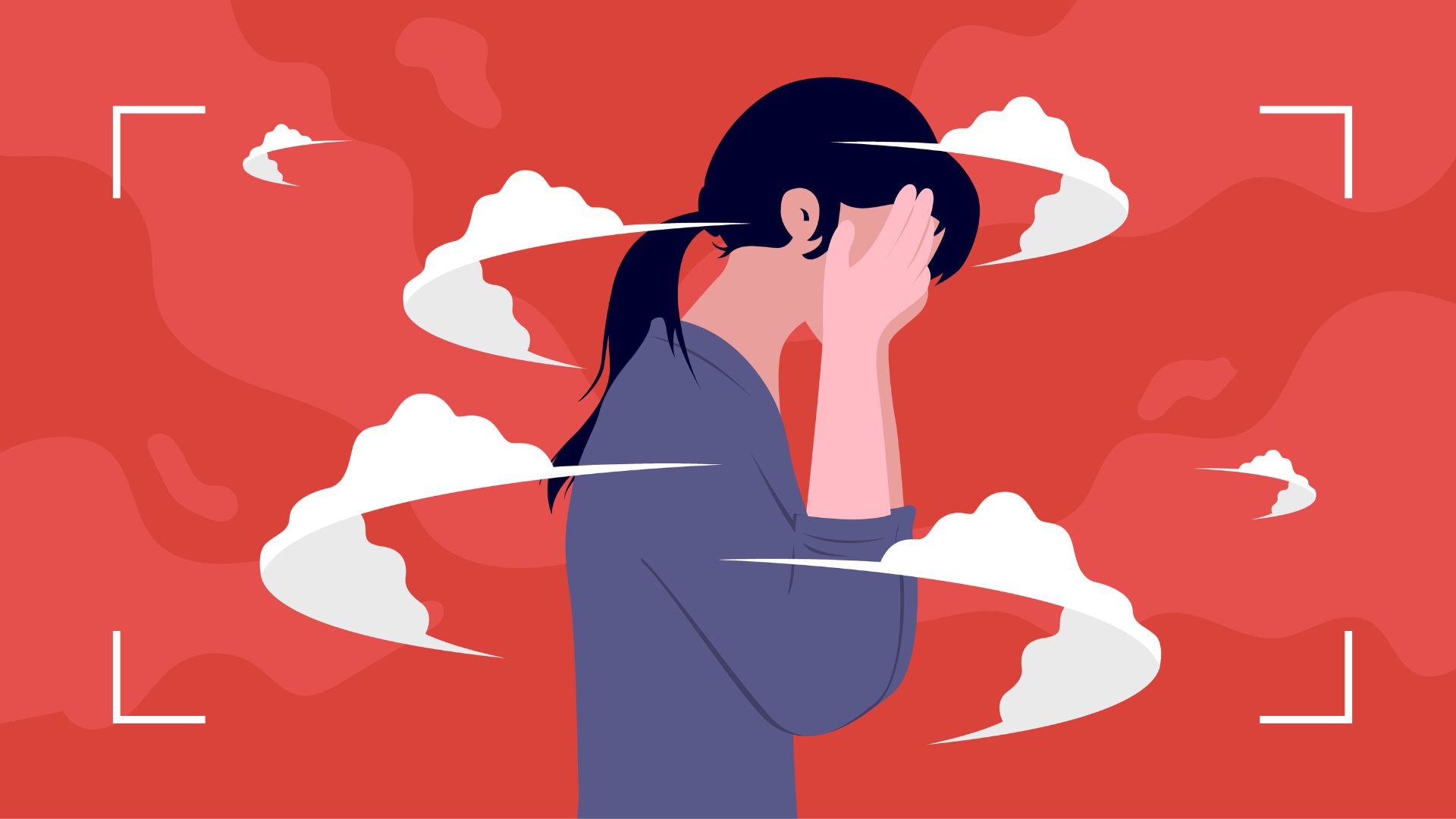
For those in the midst of emotional burnout, it can be a confusing experience. As one of the more hidden forms of chronic exhaustion, many women put troubling mental and physical symptoms down to other factors, like stress from family life and work, physical fatigue, or even grief.
Today, many people are familiar with the term 'burnout' but because symptoms are often put down to these other factors, emotional burnout often goes unrecognized in the wider discussion around mental health and wellbeing.
Burnout was initially defined by the World Health Organization (WHO) as an "occupational phenomenon", exclusively resulting from unmanaged and chronic workplace stress. But in recent years, psychologists and other experts have been warning about the limiting definition of this, given the variety of proven ways people have experienced it. While burnout from work is a serious condition, evidence shows that this type of exhaustion can come from a lot closer to home.
To reveal the devastating effects of emotional burnout, we speak to women who have been through it, plus we get advice from a psychologist to reveal how to recover from burnout in an effective and sustainable way.
What is emotional burnout?
Emotional burnout is the feeling of being totally mentally and emotionally worn out and drained as a result of stress from one or many different parts of life, including personal and professional. It's also commonly known as emotional exhaustion, which is one of the symptoms of habitual burnout.
Those going through emotional burnout may feel like they have to keep pushing through difficult situations without control or any power over what happens, as they don't want to 'drop the ball' or disappoint anyone. As psychotherapist Lorna Evans explains, "The signs of burnout are being really tired, feeling emotionally blunted, drained, tired, helpless, disillusioned, and cynical. Those experiencing burnout really feel stuck in their life."
As with most other types of burnout, there are physical symptoms too - including head and body aches, a lack of sleep, and lower immunity, meaning flu and other illnesses are more common.

Often though, these symptoms are seen and treated as individual issues rather than as signs of a wider problem. This is where the difficulty of emotional burnout lies, says Evans, who is also the spokesperson for the UK Council for Psychotherapy. "The dangers of this are people are going to be labeled as mentally ill, as having anxiety [for example, rather than burnout], instead of looking at specifically what the stressor is."
Emotional burnout can be hard to spot, which is why knowing the symptoms and treatment options is so important. Here, we speak to four women to reveal what burnout feels like really.
Emotional burnout symptoms
1. Mental exhaustion
While it can look different for everyone, the first sign of emotional burnout is mental exhaustion. Those with the condition often report feeling completely disconnected from their own lives and unable to properly process their emotions.
Antoinette Daniel started experiencing burnout after the stress of growing a new business, charity work, and a part-time job coincided with the death of both her parents within a 10-month period. She says she just went into "autopilot".
"In October 2015 and August 2016, both of my birth parents unexpectedly died. In July 2015, I finally realized that I wasn't coping well with the death of my dad and had sought out counseling," she tells woman&home. "I had one session where I realized that I was also worried about my mum passing away, and by the second session, this is exactly what happened. "
To deal with the grief while trying to manage three jobs, Antoinette says she just kept moving through her days without feeling in control of anything. "I felt scared that I would have a public meltdown," she says. "I cried a lot but I put it down to grief and explained it away as normal. I lost the ability to make complex decisions."
2. Feeling more cynical or pessimistic
Complete mental exhaustion can go one of two ways, either pulling the emotions inward as Antoinette describes, or pushing them outward, which can result in a cynical outlook on life. In fact, Evans says, feeling cynical or pessimistic about life is one of the biggest symptoms of emotional burnout.
Lyndsey Murray is a couples' counselor and AASECT-certified sex therapist today, but before experiencing burnout she worked with people with disabilities. While Lyndsey was determined to make a difference in a situation, budgets and costs were put above all else and the lack of progress led to her feeling apathetic toward what she cared most about.
"I felt burned out because I couldn’t see where I was being effective and they were asking too much of us for such little pay," she says. "I’m sure some of that is internal and looking back, I can see I still had a positive impact through the good and bad, but when you’re in the weeds of it and know you are limited in how you can help, it’s a constant cycle of thinking 'there's not much I can do'. That was very exhausting for me."

3. Anxiety
Another common symptom is anxiety, constantly feeling on edge and nervous about even the smallest task. It's like "slowly sinking into mud," says Antoinette, "I felt scared of being exposed as a fraud all the time in each of my [work] roles."
It's a feeling that Amy Wilkinson can relate to as well. Today she works as a leadership coach specializing in resilience but previously held a high-powered role in the food manufacturing industry. She says her "whole life was about work" before she experienced burnout so severely she woke up one day unable to move her hands or legs.
"I took three months off work and never went back to that job. When I took the time off though, I started to see all these other symptoms that I hadn't noticed before because I hadn't slowed down, like crawling any feelings in my legs, that buzzing flight or fight feeling, brain fog, ringing in my ears, and feeling overwhelmed by going to the supermarket."
Emotional burnout can also affect those with other pre-established mental health conditions, including those who already have anxiety. "Lots of things started to become really difficult in my personal life, which began to take its toll in terms of my stress and anxiety," says Sarah Markham, founder of Calm In A Box. "I think I've always had a level of anxiety, high-functioning anxiety where I look fine on the outside but I'm paddling really hard to try and keep everything together on the inside."
Sarah worked a corporate job where the stress was consistent but when she had her daughter, the pressure to keep everything ticking along as normal became too much. "I knew I was paying the price of that in terms of the intense stress on my body. I’ve had a bad back for a long time but I ended up with slipped disc. I could feel the stress and anxiety from my brain going into my body and I didn’t know how to stop that from happening," she says.
"For somebody who is always quite in control and careful, I remember at that point thinking I really don't know what to do. I knew that my back was going to go and that would make my job very difficult, it would make being a Mom difficult."
3. Physical exhaustion
Among all four women, physical exhaustion is the common symptom, proving just how much our brains are linked to our bodies.
"About two months before the wedding, I got this really bad head cold that totally floored me and I couldn't move for the whole weekend. But instead of giving myself the extra day of rest, I got up at 5 am and drove to the site I worked at. I didn't ever give myself time to recover," says Amy. "I can't remember any of the rest of that week. It sounds dramatic but it felt like when people talk about car accidents, how they can't remember it. I'd just blacked out. The next Saturday I woke up and I physically couldn't move my legs or arms. I hadn't been listening and my body gave up, which was terrifying."
For Antoinette, fatigue was a common feeling. "I was tired all of the time, physically and emotionally. I decreased my contact with people [as well] as it just felt too draining to be around them."
This is unfortunately to be expected in those dealing with emotional burnout, explains Evans. "Mind and body are completely fused. The immune system is impacted [when someone is burned out], meaning they might get a lot of colds and other illnesses. Additional levels of cortisol and adrenaline in the body, as a result of stress, cause people to feel tired and it impairs good sleep. It's important to be mindful of the impact on both mind and body because they do not exist on islands."

4. Headaches
Headaches are another painful physical side effect of emotional burnout.
"I changed jobs and it was quite a high-powered position in food manufacturing," says Amy. "I was also getting married and frantically exercising and restricting my diet to get into my wedding dress. I'd moved house as well. All of those stressful life events happened in the space of about a year and I started to get icepick headaches. It felt like someone was hitting me in the head with an icepick, but I would still feel like I had to work from bed."
Looking back at it now, she says, the first sign was the headaches as though she felt so unwell, she felt like she still had to work from bed. "I was unable to switch off and I felt totally wired all the time. Even when my body was telling me I needed to rest, I would be pushing through."
Please note, the following section contains discussion of suicide and self-harm.
5. Depression
It's perhaps unsurprising, given the incredible mental toll emotional burnout takes, that depression is another common symptom. However, this is one that often gets confused, especially if there are serious adverse events going on at the same time.
"The stress of organizing the funeral, managing family fall-outs, juggling what felt like an out-of-control cleaning business, and living in a dark flat caused me to slowly spiral into depression," says Antoinette. "I found myself harboring a desire to just step off the side of the earth for a moment, dreaming of being hospitalized so that I could press pause, contemplating stepping off the side of the platform and onto the train tracks. But I had to try and hold it all together because three jobs depended on me."
It was only after Antoinette ended up crying at work one day in the office that she added up all the facts: the overwhelm, the wish for a break, the thoughts of injuring herself, and the extreme feelings of grief. "I knew I needed help across all of my roles," she says.
There are many causes of depression, with emotional burnout being just one of them. If you are struggling, speak to your general health practitioner or contact a charity, such as Mental Health America in the US or Mind in the UK.
6. Feeling angry
So much emotional burnout comes from the need to live up to our own and others' expectations of what we should be doing, whether that's at work, in our relationships, or at home with family. Perhaps without even being aware of it, this can cause those experiencing emotional exhaustion to become irritable and angry toward those around them.
"[Emotional burnout] felt like anger and frustration to me," says Murray. "Not even necessarily fatigue, but an attitude of 'what's the point?' and becoming irritable and impatient, even with my clients. I look back and I’ve definitely had times where I regret how harshly I might have said something or how negatively I reacted to a certain situation. That’s usually a sign that I am burned out and have become reactive instead of upholding my own values."

How to recover from emotional burnout
The symptoms of emotional burnout don't go away instantly, says Evans, but recovery is possible. "We want to be moving our body back into balance to deal with burnout," she explains. "It's not a quick fix, it's not a holiday. It takes time, so we're looking at really activating the parasympathetic nervous system via the brain, body, and even soul. It's exercise, it's nutrition, looking for some joy in life. When we're burned out, we're not interested in anything so it's about rediscovering the sparks of life."
Here are Evans' expert tips on healing from burnout:
- Address the burnout: Work out the difference between stress vs burnout, the psychologist suggests. “It’s about knowing that something is out of balance, there’s a reason why you are burned out. Work out the difference between burnout, breakdown, or lightbulb moment.”
- Talk to someone: "Look at having someone to talk to," she suggests. Therapy is confidential and some health insurance policies offer talking therapy within the allowance.
- Reframe work: While a holiday isn't going to sort emotional burnout for good, taking the time off is important. "Take the time to switch off and book a holiday," Evans suggests. "It's very difficult to get people to book holiday these days but people have to take a break or even look at an absence of leave so they can rest."
- Review boundaries: It's important to establish boundaries in relationships when dealing with burnout, she says, especially if it's emotional exhaustion and relationship burnout you're suffering from. This can be with friends, family, or with work, setting hard limits and deal breakers is essential.
- Relaxation: "Activities like yoga, mindfulness, deep breathing that’s going to activate the parasympathetic nervous system," she suggests. "Prioritize exercise, shifting your state by walking, playing golf, going to the gym, walking the dog. Basically, anything where you don’t have tech in your hands."
- Notice what you're eating: When under stress, it's perfectly normal for your diet to change. However, our food has a big impact on our mood and can influence our behavior. "When we’re not feeling great we normally go for the caffeine, sugar, and carbohydrates," says the psychologist, which can leave us feeling undernourished. "It's also important to be aware of alcohol as well. As a depressant, it removes all that serotonin."
Emotional burnout includes feelings of hopelessness, anxiety, depression, and a lack of purpose in life, which can be overwhelming. If you're having thoughts of suicide or otherwise need help, contact the National Suicide Prevention Lifeline at 1-800-273-TALK (8255). If you're in the UK, contact the Samaritans at 116 123.







